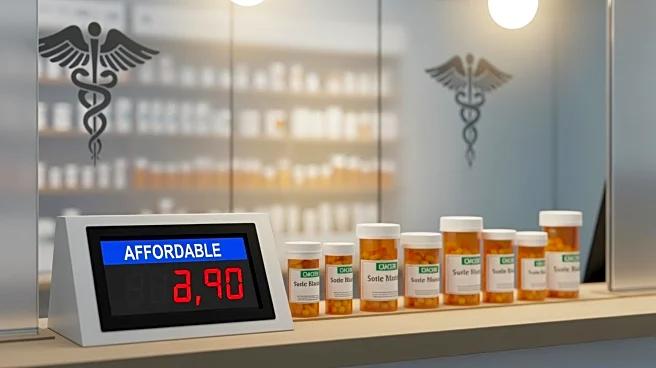What is the story about?
What's Happening?
Hello Heart, a digital health platform, has introduced a new suite of tools designed to assist patients in managing heart disease medications. The suite includes Nia, an AI assistant, a connected pill box, and pharmacist reviews of health records for high-risk patients. These tools aim to improve medication adherence and manage side effects, addressing the prevalent issue of hypertension among U.S. adults. The AI assistant provides guidance on medication interactions and lifestyle, while the pill box offers reminders to take medications. Pharmacists review health records to identify gaps in care, ensuring patients receive appropriate treatment.
Why It's Important?
The introduction of Hello Heart's AI assistant and medication management tools represents a significant advancement in digital health solutions for cardiovascular disease, the leading cause of death in the U.S. By improving medication adherence, these tools can potentially reduce hospitalizations and healthcare costs associated with untreated heart conditions. The initiative aligns with stricter guidelines from the American Heart Association, emphasizing the importance of managing hypertension. For employers and health plans, the tools offer a cost-effective solution to improve employee health and reduce medical expenses, highlighting the growing role of technology in healthcare management.
What's Next?
Hello Heart plans to expand the use of its AI assistant and medication management tools, targeting self-insured employers and health plans. The company aims to demonstrate significant cost savings through improved medication adherence, potentially influencing broader adoption of digital health solutions in cardiovascular care. As the platform gathers more data, Hello Heart may refine its AI capabilities and explore additional applications for other chronic conditions. Stakeholders, including healthcare providers and insurers, will be watching the impact of these tools on patient outcomes and healthcare costs, potentially driving further innovation in digital health.















